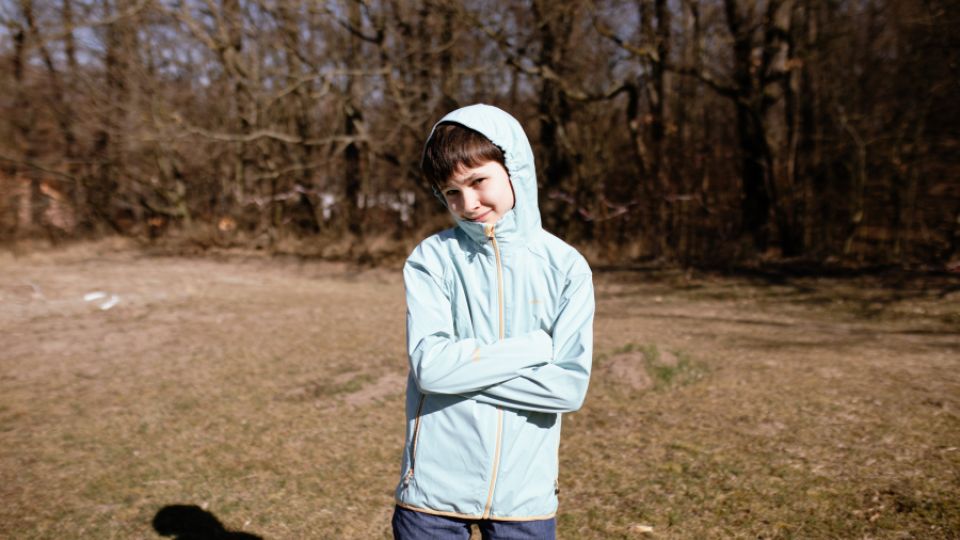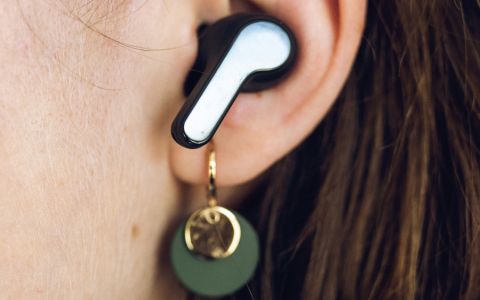46 European civil society organisations urgently demand EU Member States and the Commission to ban all PFAS in consumer products by 2025 and across all uses by 2030.
Two years ago, the European Commission published its Chemicals Strategy for Sustainability including a commitment to phase out per- and polyfluorinated alkyl substances, PFAS (also known as ‘forever chemicals’) in all non-essential uses [1]. Now is the time to fulfil this commitment and show to the rest of the world that phasing out PFAS is possible.
PFAS [2] pollution is out of control and exposure to several forever chemicals has been linked to an array of adverse health impacts, from liver damage to reduced response to routine vaccination by children and certain cancers [3]. PFAS have contaminated the entire planet and are found in most people's bodies around the globe [4].
Even before birth, babies are already exposed to PFAS in their mother’s womb. PFAS enter our bodies via our food, drinking water and consumer articles used daily, such as personal care products and food packaging. In Europe, 14% of teenagers have PFAS levels in their bodies exceeding health recommendations [5].
“We’re talking about a group of entirely human-made chemicals that didn’t exist on the planet a century ago and have now contaminated every single corner. No one gave their consent to be exposed to these harmful chemicals, we haven’t had the choice to opt out and now we have to live with this toxic legacy for decades to come. The very least we can do is to stop adding to this toxic burden by banning PFAS use and production now,” says Dr. Julie Schneider, PFAS campaigner at CHEM Trust.
To underline this demand 46 health and environmental civil society groups have launched the Ban PFAS manifesto. It lists 10 demands and calls on authorities and companies to stop adding to the PFAS pollution burden and address the existing one.
Signatories of the manifesto urge EU authorities to act immediately, and invite European civil society organisations to support their call for action by adding their name to the Ban PFAS Manifesto.
Karolina Brabcova, campaign manager at the Czech NGO Arnika, said: “The most sensible strategy is to start by banning PFAS in consumer products such as food packaging, cosmetics and clothing to stop this daily route of exposure for millions of people in Europe. The Commission and EU Member States should keep their promise and proceed swiftly with their proposal to ban PFAS as an entire group, ideally by 2025 for uses in consumer products.”

NOTES TO EDITORS:
The Ban PFAS manifesto was initiated by CHEM Trust, Arnika, Tegengif, the Health and Environment Alliance (HEAL), EEB, ClientEarth, and BUND and has been signed by 46 civil society organisations. The manifesto is available in English, French, German, Spanish (and soon in Italian) here: https://banpfasmanifesto.org/en/
For enquiries contact:
Dr Julie Schneider, Campaigner at CHEM Trust, This email address is being protected from spambots. You need JavaScript enabled to view it., +44 07 564 154 378
[1] The European Commission published its Chemicals Strategy for Sustainability (CSS) on 14 October 2020 as part of the EU’s zero pollution ambition, a key commitment of the European Green Deal. In the CSS the Commission committed to “ban all PFAS as a group in fire-fighting foams as well as in other uses, allowing their use only where they are essential for society”.
[2] PFAS, per- and polyfluorinated alkyl substances, are a large family of over 4,700 human-made chemicals according to the 2018 OECD definitions. OECD, 2018. Toward a new comprehensive global database of per-and polyfluoroalkyl substances (PFASs): summary report on updating the OECD 2007 list of per-and polyfluoroalkyl substances (PFASs). Series on Risk Management No. 39 http://www.oecd.org/officialdocuments/publicdisplaydocumentpdf/?cote=ENV-JM-MONO(2018)7&doclanguage=en
Since their introduction in the late 1940s, PFAS have been used in an increasingly wide range of consumer products and industrial applications, ranging from food packaging and clothing to electronics, aviation and firefighting foams. They are used for their capacity to repel both grease and water as well as for their high stability and resistance to high temperatures - thanks to their carbon-fluorine bond. However, this bond - the strongest bond in organic chemistry - is also responsible for their extreme persistence in the environment, granting them the label ‘forever chemicals’.
[3] See HEAL, May 2021. How PFAS chemicals affect women, pregnancy and human development: Health actors call for urgent action to phase them out. https://www.env-health.org/how-pfas-chemicals-affect-women-pregnancy-and-human-development-health-actors-call-for-urgent-action-to-phase-them-out/
And EFSA Panel on Contaminants in the Food Chain (EFSA CONTAM Panel), 2020. Risk to human health related to the presence of perfluoroalkyl substances in food. EFSA Journal, 18(9), p.e06223. https://doi.org/10.2903/j.efsa.2020.6223
[4] See Cousins, I.T. et al., 2022. Outside the Safe Operating Space of a New Planetary Boundary for Per-and Polyfluoroalkyl Substances (PFAS). Environmental Science & Technology, 56, 16, pp.11172–11179. https://doi.org/10.1021/acs.est.2c02765
And The Guardian, 23 September 2022. ‘Forever chemicals’ detected in all umbilical cord blood in 40 studies https://www.theguardian.com/environment/2022/sep/23/forever-chemicals-found-umbilical-cord-blood-samples-studies
[5] See HBM4EU, April 2022. HBM4EU Newspaper, April 2022, page 55. https://www.hbm4eu.eu/wp-content/uploads/2022/05/HBM4EU-Newspaper.pdf
About CHEM Trust
CHEM Trust is a collaboration between CHEM Trust, a UK registered Charity and CHEM Trust Europe eV, which is a charity based in Germany. Both legal entities work closely together on projects under the name CHEM Trust. Our overarching aim is to prevent synthetic chemicals from causing long term damage to wildlife or humans, by ensuring that chemicals which cause such harm are substituted with safer alternatives. EU Transparency Register Number: 27053044762-72 https://chemtrust.org/
About Arnika
Arnika Association (Czech Republic) is a non-governmental organisation established in 2001. Its mission is to protect the nature and healthy environment for future generations both at home and abroad. Since the beginning Arnika has been working on protection of consumers from chemically hazardous products. https://arnika.org/en/
Tegengif - Erase all Toxins
Tegengid is a not-for-profit organisation based in Amsterdam. Our aim is a non-toxic living environment. We raise public awareness of consumers’ daily exposure to toxic chemicals via appealing research, campaigning and policy influencing. We believe growing awareness will both stimulate the demand for toxin-free products and increase public support for regulations for a toxin-free world. https://www.erasealltoxins.org
The Health and Environment Alliance (HEAL) is the leading not-for-profit organisation addressing how the environment affects human health in the European Union (EU) and beyond. HEAL works to shape laws and policies that promote planetary and human health and protect those most affected by pollution, and raise awareness on the benefits of environmental action for health. HEAL’s EU Transparency Register Number: 00723343929-96. www.env-health.org
About the European Environmental Bureau (EEB)
The EEB is Europe’s largest network of environmental citizens' organisations, bringing together 180 member organisations from 38 countries. It is monitoring, advising and influencing the way the EU is dealing with Europe’s most pressing environmental issues such as climate change, biodiversity, circular economy, air, water, soil, chemical pollution, as well as policies on industry, energy, agriculture, product design and waste prevention among others. https://eeb.org/
About ClientEarth
ClientEarth is a non-profit organisation that uses the law to create systemic change that protects the Earth for – and with – its inhabitants. We are tackling climate change, protecting nature and stopping pollution, with partners and citizens around the globe. We hold industry and governments to account, and defend everyone’s right to a healthy world. From our offices in Europe, Asia and the USA we shape, implement and enforce the law, to build a future for our planet in which people and nature can thrive together. https://www.clientearth.org/
About Bund für Umwelt und Naturschutz e.V. - BUND
BUND/Friends of the Earth Germany is a non-profit, non-partisan, grassroots organisation with more than 650 000 members and supporters. We work to combat the climate crisis and prevent the extinction of species, and take action for a socio-ecological transformation of the economy and society. We are organised into more than 2,000 local groups and initiatives, committed and skilled people take action against the destruction of nature and environment. https://www.bund.net/bund-in-english/







